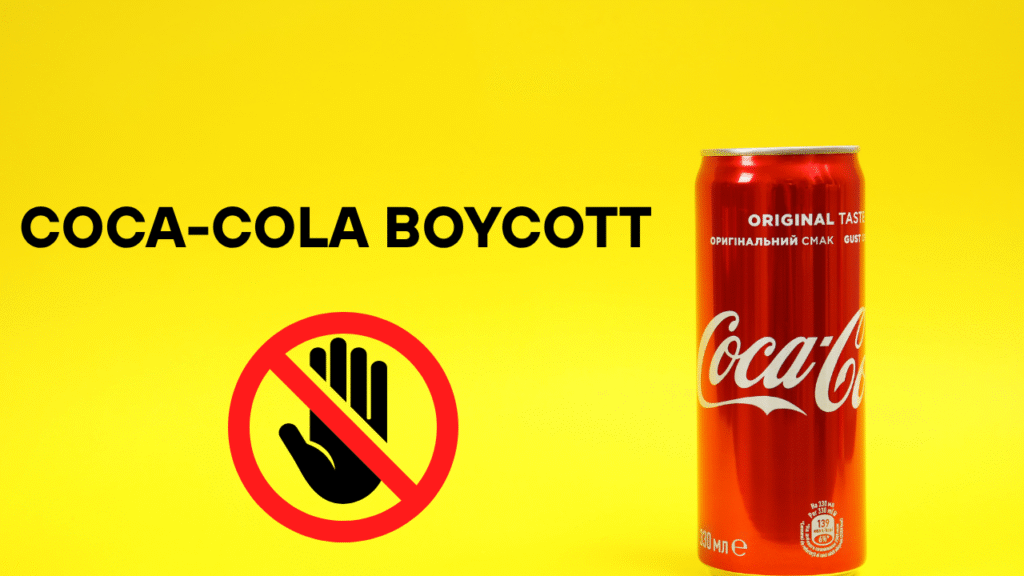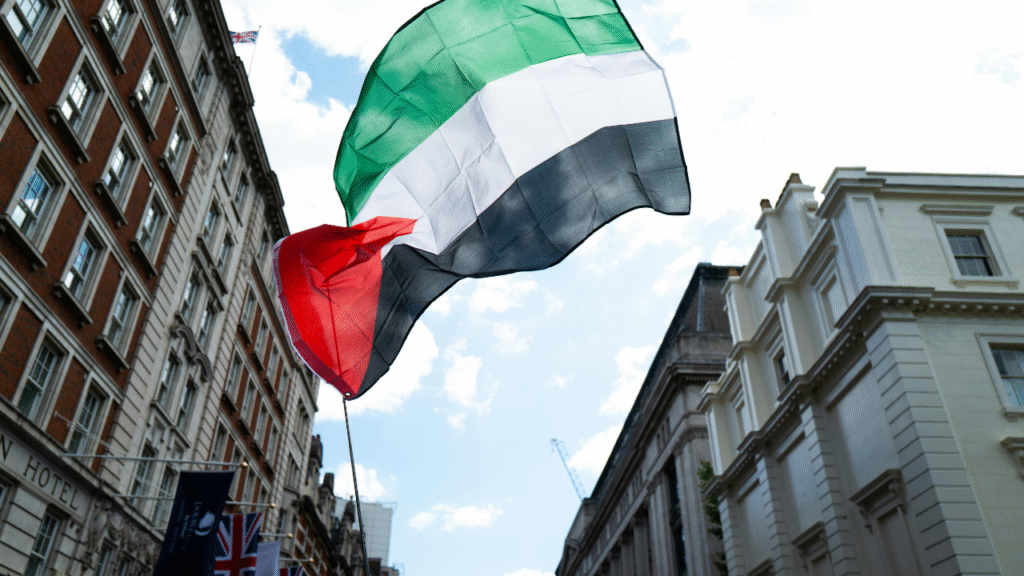The Global Call for Accountability: Understanding the BDS Movement’s Targeted Boycott Strategy

The Boycott, Divestment, and Sanctions (BDS) movement, led by the Palestinian BDS National Committee (BNC), represents the largest coalition in Palestinian society advocating for Palestinian rights and liberation. The movement’s core philosophy centers on non-violent economic pressure, drawing inspiration from the historic struggles against South African Apartheid and colonial rule in various parts of the world, including India and Ireland. In the face of what the BNC describes as Israel’s “ongoing, live-streamed genocide” against 2.3 million Palestinians in Gaza and its long-standing regime of settler-colonialism and apartheid, the BDS movement asserts that ending the complicity of international actors—states, corporations, and institutions—is the most effective form of global solidarity.
The urgency of this action has been magnified by recent significant legal developments. The International Criminal Court (ICC) issued arrest warrants on November 21, 2024, against sitting Israeli Prime Minister Benjamin Netanyahu and former war cabinet minister Yoav Gallant for alleged war crimes and crimes against humanity in Gaza. Furthermore, the International Court of Justice (ICJ) ruled in July 2024 that Israel’s entire occupation of Gaza and the West Bank, including East Jerusalem, is illegal, confirming that it violates the prohibition against apartheid. These authoritative international rulings underscore the legal and moral basis for holding complicit corporations accountable.
Targeted Boycotts: A Strategic Approach to Corporate Accountability
The BNC stresses that while people of conscience worldwide feel “shattered, enraged, and sometimes feeling powerless” over the Gaza situation, fueled, funded, and protected by Western powers, the key to effective action lies in strategic focus. The impulse to boycott every product remotely connected to Israel is understandable, but the BDS movement advocates for targeted boycotts—a historically proven method for achieving maximum impact.
The Rationale Behind Targeting
The movement’s success, which has already compelled major corporations like G4S, Veolia, Orange, Puma, and Pillsbury to end their involvement in Israeli human rights violations, is built on a set of stringent selection criteria and operational principles.
BDS Target-Selection Criteria:
- Level of Complicity: Targets must have a clear and direct role in facilitating Israel’s crimes against Palestinians, backed by accurate and convincing research. Direct complicity is defined as providing military, logistical, intelligence, financial, and infrastructure support. Corporations and their executives may face serious criminal liability for this complicity, especially following the ICJ’s plausible genocide determination.
- Intersectionality: Prioritizing companies that are also targets in other liberation struggles (racial, indigenous, social, gender, and climate justice) maximizes cross-movement synergy and impact.
- Brand Recognition and Media Appeal: Selecting widely recognized brands helps amplify the message and reach a broader audience, which is crucial for successful mass mobilization.
- Potential for Success: Campaigns must be launched where there is a realistic chance of winning, ensuring that effort is concentrated on achievable goals that build long-term power.
BDS Operational Principles:
- Gradualness: Employing incremental steps to build sustained power and momentum over time.
- Sustainability: Ensuring that victories are maintained and built upon to advance the overall goals.
- Context-Sensitivity: Adapting tactics to best suit the specific political and cultural context of local mobilization efforts.
The Economic Imperative: Why Boycotts Work
Beyond ethical and legal considerations, the BNC highlights a growing economic argument for divestment and boycotts. Israel’s economy is reported to be in a steady, at times drastic, decline. This includes a “dramatic flight of capital, severe brain drain, drying foreign direct investments in high tech, and a generally unsafe, unstable, and ‘collapsing’ economy.” The BNC labels this an emerging #ShutDownNation. This economic instability provides a potent tool for mobilizing shareholders, demonstrating that investment in companies complicit in Israeli apartheid is not only unethical but also financially irresponsible.
Priority Targets for BDS Action
The BDS movement is clear that it targets complicity, not identity. For an Israeli company to be considered non-complicit, it must meet two stringent conditions: 1) Not be involved in Israel’s military occupation, apartheid, or settler colonialism; and 2) Publicly recognize Palestinian rights under international law, particularly the right of refugees to return in accordance with UN resolution 194. Since the BNC currently believes that no Israeli company meets these two conditions, the movement calls for a boycott and divestment from all Israeli companies, prioritizing those leading in sectors like military-security, technology, energy, finance, diamonds, agriculture, water, and agribusiness that operate internationally.
The current top priority boycott and pressure targets are categorized into three strategic sections:
1. Consumer Boycott Priority Targets
The BNC calls for a complete boycott of these carefully selected brands due to their proven record of complicity in Israeli apartheid. The legal expert opinion commissioned by Al Haq and SOMO affirms that a corporation “who knowingly assists a State in violating customary international law, including the prohibition of committing genocide, may be complicit in such a violation,” making these targets highly vulnerable to liability.
- Chevron (including Caltex and Texaco brands): Implicated in the energy sector’s role in the occupation.
- Intel: Major technology and infrastructure provider.
- DELL: Technology and computer hardware complicity.
- Siemens: Involved in infrastructure projects like the EuroAsia Interconnector.
- Hewlett Packard (HP): Deep role in entrenching the occupation through services and technology.
- Microsoft: Technology and software complicity.
- Carrefour: Supermarket chain linked to support for illegal settlements.
- AXA: Financial giant with investments in Israeli banks financing illegal settlements.
- Reebok: Complicity through product licensing or branding that ignores Palestinian rights.
- Disney+: Targeted for intersectional and brand-recognition reasons, often linked to broader complicity arguments.
- SodaStream: A highly visible target previously based in an illegal settlement.
- RE/MAX: Real estate company involved in properties in illegal settlements.
- Israeli produce and other products in your supermarkets: This remains a broad, foundational boycott target.
2. Grassroots Organic Boycott Targets
These campaigns were not initiated by the BDS movement but are actively supported by the BNC because the companies, or their Israeli branches/franchisees, have openly supported apartheid Israel and/or provided generous in-kind donations to the Israeli military amidst the current genocide. This category highlights the spontaneous and powerful nature of grassroots activism.
- McDonald’s
- Coca Cola
- Burger King
- Papa John’s
- Pizza Hut
- Domino’s Pizza
- WIX
3. Pressure Targets
For these companies, the BDS movement calls for active pressure campaigns which can include boycotts (where reasonable alternatives exist), lobbying, peaceful disruptions, social media pressure, and strategic litigation.
- Financial Institutions: Major global banks and investment funds complicit through financial ties.
- Tech & Arms Companies: Corporations providing critical military, surveillance, and technological support.
Divestment and Exclusion from Contracts: Institutional Accountability
Beyond consumer boycotts, Divestment and Exclusion from Contracts are indispensable tools. The BDS movement works to pressure governments, city councils, investment funds, institutions (including universities), and trade unions to exclude complicit companies from procurement contracts and investment portfolios.
The BNC relies heavily on authoritative third-party research to identify these targets, including:
- AFSC list of companies implicated in arming Israel’s #GazaGenocide.
- AFSC Investigate database of companies enabling the occupation.
- UN database of businesses involved in Israel’s illegal settlement enterprise.
- WhoProfits database of corporations profiting from the ongoing Israeli occupation.
- Don’t Buy Into Occupation list of businesses involved in the illegal Israeli settlement enterprise where European financial institutions have investments.
By adopting an ethical investment policy or a universal human rights-based investment screen, institutions can proactively prevent investments in all companies complicit in human rights violations, thereby reinforcing the intersectional mandate of the BDS movement. The strategic goal remains to send a compelling message to hundreds of complicit companies: “your time will come, so get out before it’s too late!”








